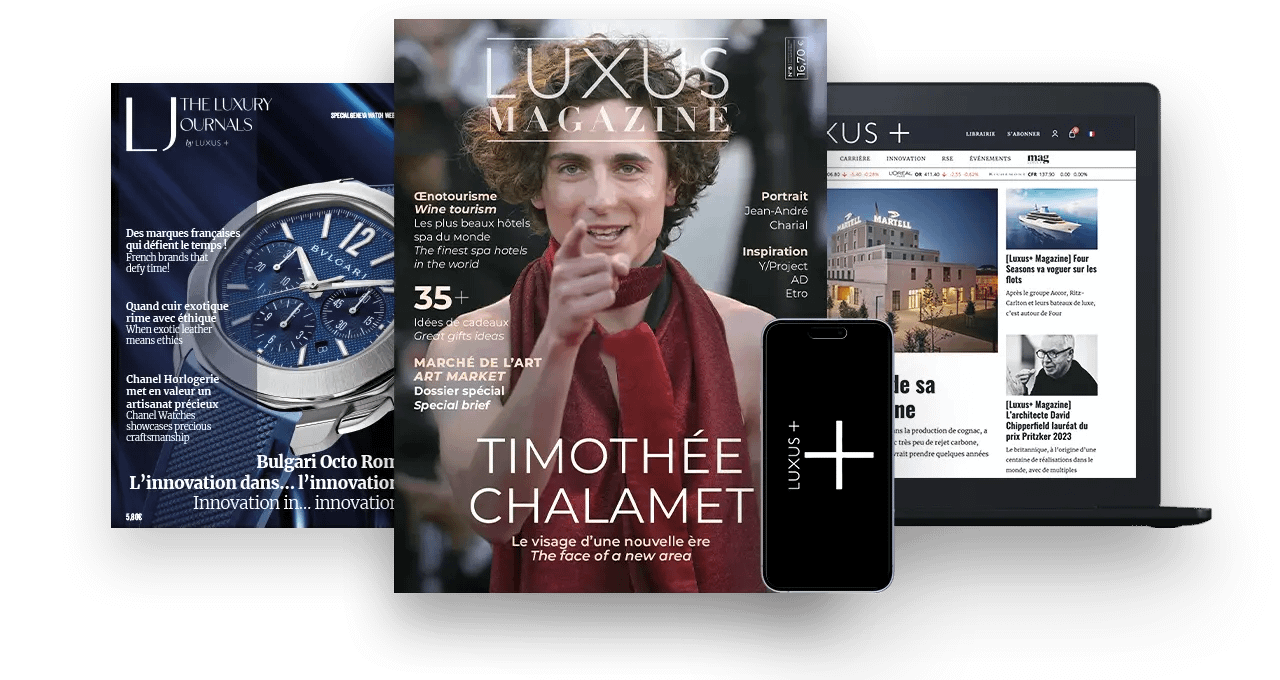The luxury goods market in Japan is booming, driven by growing demand and a particularly favourable economic climate. This momentum has been reinforced by the return of tourists, particularly from South Korea, Taiwan and the USA, as well as increased consumption by young urbanites and older Japanese. However, this growth remains fragile in the face of global economic uncertainties and fluctuations in the yen.
Japan’s luxury goods market is enjoying a remarkable boom, driven by growing demand and special economic conditions.
Sales of luxury goods in Japan rose significantly in the first quarter of 2024.
Prada, for example, recorded a nearly 50% increase in sales in the Land of the Rising Sun compared with 2023. Similarly, LVMH, owner of brands such as Moët Hennessy and Louis Vuitton, reported “strong double-digit growth” during the same period, while Richemont saw its annual revenues in Japan increase by 20% at constant exchange rates.
Prada CEO Andrea Guerra underscored this momentum at the FT Business of Luxury Summit, claiming that Japan is currently “on fire” in terms of sales. This momentum is reinforced by the fact that 2023 figures have far surpassed those recorded before the Covid-19 pandemic.
Importance of tourists
Part of this growth is attributed to the partial recovery of tourism, although current Chinese visitor figures are still a long way from pre-pandemic levels. In 2019, Japan welcomed almost 10 million visitors from the People’s Republic of China, but by 2024, this figure had fallen to less than 900,000.
In addition, today’s Chinese tourists spend a smaller proportion of their budget on shopping, preferring short trips to expensive souvenirs. As a result, per capita spending by visitors to Japan from the Middle Kingdom has reached its highest level in over a decade.
However, this growth is threatened by external factors. Japanese consumers, who are highly sensitive to international conditions, restrict their purchases as soon as they perceive an imminent economic or geopolitical crisis. The fall of the yen against the dollar and the euro complicates the situation, although customers have so far absorbed the price increases deployed by brands to avoid distortions between markets. The yen has fallen to a record low of nearly 158 yen to the dollar, making Japanese luxury goods particularly attractive to foreign tourists.
However, the threshold of tolerance is approaching, and some Houses having raised their prices too much are finding themselves with more stocks, requiring increased vigilance to maintain the balance.
Rich and single
In Southeast Asia, considered the new frontier of global luxury, Japan is benefiting from specific drivers stimulating demand. Norbert Leuret, President of LVMH Japan, points out that, despite stagnant growth for decades, affluent Japanese households have accumulated substantial savings, with domestic financial assets valued at 25,000 billion euros, or six times the country’s GDP. According to real estate consultant Knight Frank, there are 70 million “very affluent people” (with over $1 million in assets) worldwide, including 3.9 million in Japan. “Seniors here are very positive and spend a lot,” confirms Norbert Leuret.
In addition, many cash-obsessed families are accumulating large sums of 10,000 yen banknotes to spend before the Bank of Japan’s planned replacement in mid-2024. Many large in-store transactions are still made in cash, enabling parents to help their children escape high inheritance taxes, which reach 55% at the top end of the scale.
Japan’s young urbanites, despite having less savings than their elders, are more likely than their European or American counterparts to visit luxury stores. Faced with the demographic crisis and labor shortages, government and business have increased the employment rate for women, reaching 81% for those aged 25 to 39. These women, with their higher incomes and greater opportunities for self-indulgence, are contributing to a sharp rise in fragrance sales, historically modest in Japan. Perfume has thus become a product of appeal for discovering luxury.
But above all, young Japanese people, increasingly single and with fewer children, are adapting to a solitary life and consuming despite falling real wages. They are abandoning fast-fashion brands in favor of high-end boutiques or luxury goods resale sites such as Mercari or Komehyo.
Persistent caution
Despite these positive figures, analysts remain cautious about the sustainability of this trend. The yen’s weakness may not be sustained in the long term, and the luxury goods sector may not benefit from this advantage forever. In addition, the full return of Chinese tourists, a key driver for luxury sales before the pandemic, is not expected before 2025 or later.
Chinese consumer habits are also changing, with an increased preference for shopping at Hainan’s gigantic duty-free stores and, more generally, for domestic travel. This trend could limit the growth of luxury sales in Japan in the medium term.
The rebound of the Japanese luxury market is undeniably strong, supported by a combination of economic factors and changes in consumer habits. However, the sustainability of this growth will largely depend on the evolution of the yen and the return of Chinese tourists.
For investors, this is a promising period, but one that calls for continued vigilance in the face of economic fluctuations and changes in consumer behavior. The sector must therefore navigate cautiously in a global environment that remains uncertain.
Read also>PCG AIMS TO EXPAND IN JAPAN’S LUXURY SKI INDUSTRY
Featured photo : © Getty Images






































